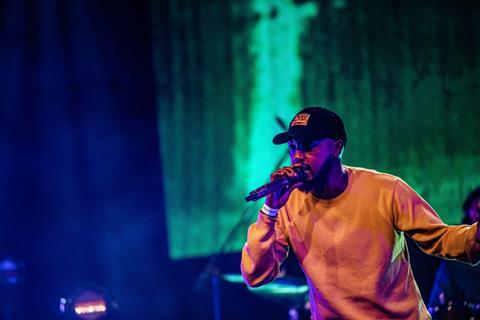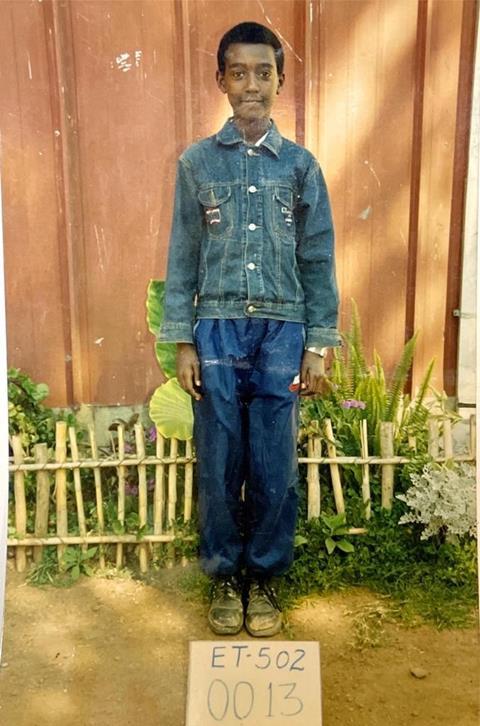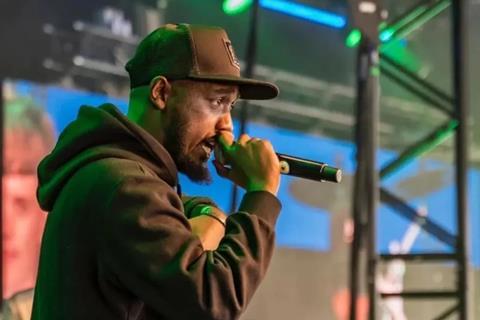Advertisement feature

My mum was only eight years old when she ran away from early marriage. They wanted to give her away, but she said no. So, on her own, she took a train to the big city. She didn’t know where she was going; she just ran.
You can imagine being in the city and not having anyone. That’s why she never had any proper education or access to opportunities. She was a survivor.
And that’s how I came to be born in one of the slum areas of Addis Ababa, the capital city of Ethiopia. My dad abandoned my mum when I was just two years old. I had no siblings. Growing up in extreme poverty and without a father figure was really tough.
My experience of poverty
Urban poverty is a holistic challenge. It’s not just about not having any money.
We lived in one small house. You could barely call it a house. The walls were torn apart, and we used to hate the rainy season because we couldn’t afford to repair the roof.
There were times I would ask if we were going to eat today, and my mum would say no. We couldn’t afford to eat three times a day, so we would go to bed with empty bellies.
We never had a personal toilet. In fact, we shared one toilet with hundreds of others in the community. The smell of poverty. We used to get sick a lot because we never had access to clean water. Kids would pass away from preventable diseases. Going to hospital was a luxury.
The church was my safe house
I was five years old when I first heard about Compassion and church workers from local churches came [and registered me].
We were given a lot of support through Compassion. Now I could go to school, have decent clothing. But it wasn’t just going to school.

I made memories over memories at the Compassion project. Let me tell you about the first time I saw a playground, I was so blown away. I’d never had a chance to play at a playground because we never had any in our community. I was like, ‘what is this spinning!?’ For me, and for all the kids, we were so happy.
It was the little things the Compassion project workers said that mattered the most. They used to say, “God loves you, we love you and you are welcome here.” This was the strangest thing I’d ever heard. Back in my community, nobody had the time to tell you that they loved you.
It was this encouragement that gradually began to shift my mindset.
I called the church I grew up in ‘a safe house’, as it protected me from the violence, the drugs and the abuse that was back in my community. There was a lot of investment from the church in terms of training, preaching, and teaching, but it also gave me a sense of freedom and safety. I still remember all the words prayed over us, and then giving our lives to God. It was all really fruitful, especially for me, as I was given counselling and extra support. Coming to church gave me hope and made me aspire to do more in the future.
Education, by God’s grace
When I was 16, my mum was sick. On the third day she literally passed away on my hand. Life became so dark for me because she was my inspiration and the hopelessness I used to know as a kid came back. I had already heard that my dad had passed away, so I was an orphan.
If it wasn’t for Compassion, I wouldn’t be the person I am today. The project workers from the church would come into my house and pray over me and encourage me. They told me, “Don’t ever give up. You can still do it for her.”
Because of God’s grace, I made it to college. I also had the opportunity for a scholarship with Compassion on a leadership development programme. I studied hard and graduated. Kemi did it!
A voice in my generation
I used to write down all my feelings and the situations I went through. I would just cry and write, cry and write. After graduation, I met a producer who asked if I could rap, and he invited me into a studio to experiment. We started recording a song with all those lyrics I’d written down. God used my pain to make a song, and then an album. To be open to people about what I’ve been through, about how I questioned God and the answers he gave me - this is a message people can relate to. I’m just a messenger through rap music and Jesus Christ is my message. Everything points to him.

That album, my first album, was actually the first gospel rap album in Ethiopia. Now my vision is to be a voice in my generation and God is using my voice through rap music and from hosting a mainstream radio show.
I never thought I’d be a radio host, but God gave me the opportunity to broadcast for one hour every day to millions in Addis Ababa. When I was a child I thought I would be left alone for dead. Now God is using me, Kemi, to speak out to millions. I’m also building a studio to provide opportunity for the younger generation to come in and do their thing with their talents to glorify God.
It’s God’s calling and God’s grace, and I’m so grateful. My message is Jesus. He is the true way. He is the answer.
My prayer today
My prayer is for the thousands of children who, like me, cannot speak up for themselves because of poverty. The most vulnerable. Those who are orphaned and without support.
I pray for their local churches to be equipped to give them the same safety, provision and hope I experienced through the Compassion programme. Please consider coming alongside a child in poverty and becoming a sponsor today.
Kumneger Mesafint (Kemi) is a gospel rapper based in Ethiopia with two debuted albums and host to a TV show called – “Butterfly Nation”. He’ll be sharing his music and his story at the Premier Gospel Awards in London later this month. Find out more here.

























